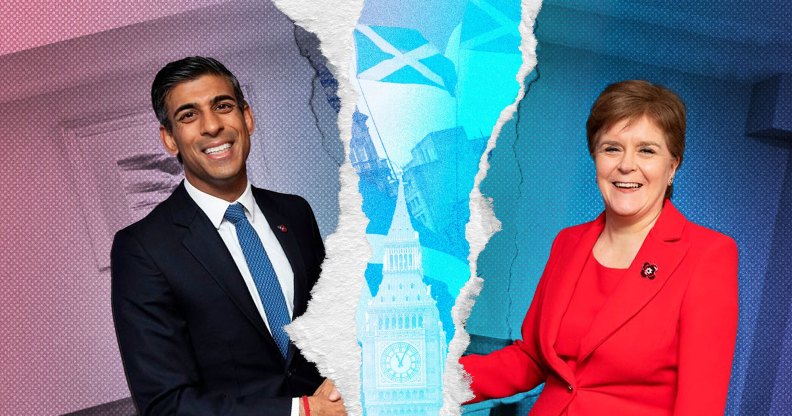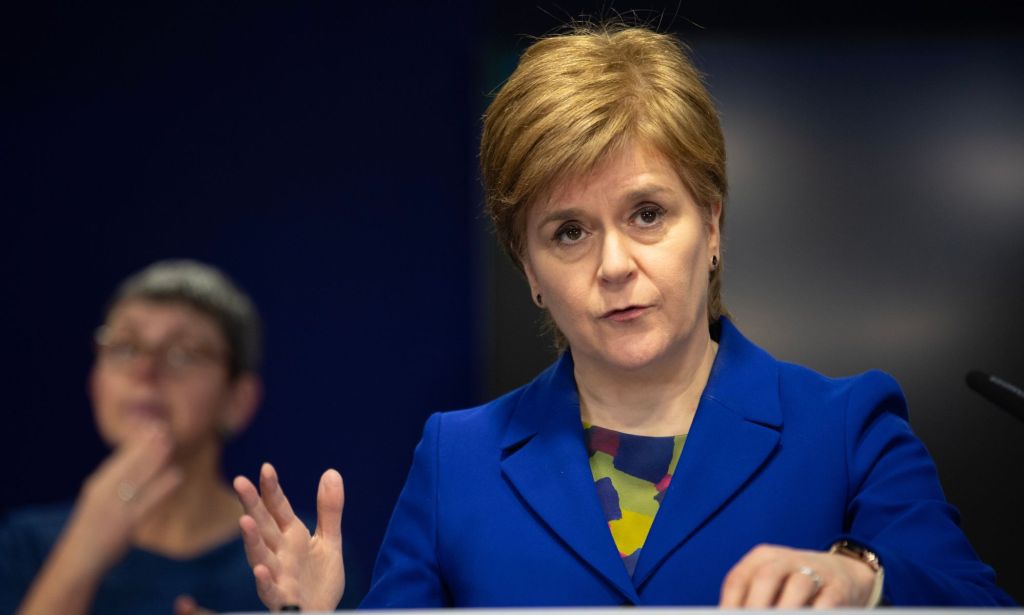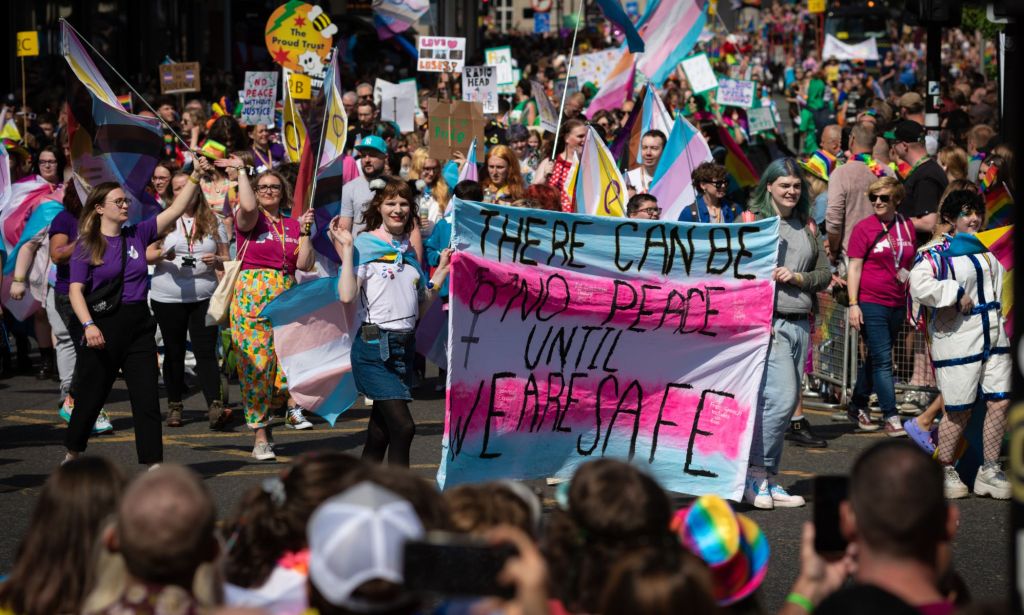UK government blocking Scotland gender bill is ‘shameless attack on trans rights’, activists say

LGBTQ+ leaders and groups denounced the UK government’s “unacceptable” decision to block Scotland’s gender reform bill. (Getty/PinkNews)
LGBTQ+ activists slammed the UK government’s decision to block Scotland’s gender reform bill as a “shameful attack on trans rights”.
On Monday (16 January), Scottish secretary Alister Jack confirmed he will enact a Section 35 order under the Scotland Act to block Scotland’s Gender Recognition Reform bill from becoming law. Jack said he had concerns the legislation would have an “adverse impact on Great Britain-wide equalities legislation”.
Scotland’s first minister Nicola Sturgeon blasted the UK government’s decision, describing it as a “full-frontal attack” on democracy. Sturgeon promised Holyrood would defend the pro-trans legislation and “stand up for Scotland’s Parliament”.
Prominent LGBTQ+ advocates also condemned the unprecedented move from Downing Street as “unacceptable” and a “shameful attack on trans rights”.
Stonewall CEO Nancy Kelley was “saddened” that prime minister Rishi Sunak decided to block Scotland’s gender reform bill “through an order under Section 35 of the Scotland Act, for the first time in the history of devolution”.
“This is a piece of legislation that simply seeks to make the process for legally recognising a trans man or trans women’s gender more respectful and straightforward,” Kelley said.
“Scotland’s bill aligns it with leading international practice endorsed by the United Nations and adopted by 30 countries, including Canada, Australia, New Zealand, Ireland and most of the United States of America.”

Kelley added the UK government should focus on “developing and implementing a strategy that improves the lives of all LGBTQ+ people”, including trans people, instead of “causing them more harm”.
“Twenty years on from the repeal of Section 28, the prime minister will re-toxify his party’s brand by repeating historic mistakes for LGBTQ+ people,” Kelley said. “This is out of step with the inclusive values of modern Britain.”
LGBTQ+ rights campaigner Peter Tatchell slammed Westminster for “falsely claiming that the Scottish gender recognition bill violates the UK’s Equality Act”.
“It doesn’t,” Tatchell said. “This is just a crude excuse for its shameful attack on trans rights and Scottish democracy.”
Vic Valentine, manager of Scottish Trans, said it was “unacceptable” for the UK government to disagree with the pro-trans legislation.
“For the UK government to seek to block the Scottish democratic process in this way, simply because they disagree with the welcome decision the Scottish parliament has made to improve trans people’s lives, is unacceptable,” Valentine said. “We fully expect the Scottish government to challenge this in the courts.”
Valentine said the bill – which passed in Holyrood with overwhelming cross-party support in December – would “introduce a simpler and fairer way” for trans people to be “legally recognised as who they truly are, allowing them to live with the dignity we all deserve”.

Jack said the decision to block Scotland’s gender bill was ‘not taken lightly’, but said it was a “necessary” move as the bill would have a “significant impact” on “GB-wide equalities matters in Scotland, England and Wales”.
This is despite Scotland’s gender bill not affecting the UK Equality Act whatsoever. The Scottish measure expedites the application process for a Gender Recognition Certificate, the legal recognition of a trans person’s gender.
Tatchell said the decision “makes a mockery of devolution” as it’s the UK government’s first-ever use of a Section 35 order since the devolution of power to the Scottish parliament in 1998.
He added the decision will “rightly fuel support for Scottish independence”.
Kelley also believed the “unprecedented” move “significantly undermines the devolution settlement” and will “unlock constitutional and diplomatic strife”.
Helen Belcher, chair of TransActual, said there is “no justification for this action” by Jack.
“He will lose any case brought by the Scottish government, because the Equality Act is 100 per cent independent of the Gender Recognition Act – and nothing in the Scottish Bill changes that,” Belcher said.
“Trans people have never needed gender recognition to be protected by the Equality Act. All this will achieve is a large and unnecessary cost to the taxpayer.”
Maggie Chapman, equalities spokesperson for the Scottish Greens, tweeted she was “so angry” about this “outrageous” UK government move. The Greens MSP, who heavily advocated for the bill, said the decision to enact Section 35 was an “attack on devolution” and “weaponises hate against trans people”.
“To attack a minority group like this shows just how low the Tory government is prepared to sink,” she said.
“They are creating a constitutional crisis by weaponising the lives of trans people. They don’t care about trans people. They don’t care about devolution. And they don’t care about Scotland.”
How did this story make you feel?

